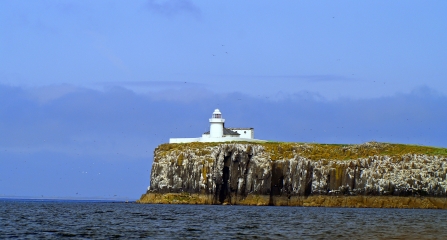
Farne Isles lighthouse. Image by: Kevin O'Hara.

Farne Isles lighthouse. Image by: Kevin O'Hara.
Recently, the government launched a consultation asking the public for their views about protecting a new group of Marine Conservation Zones (MCZs) – areas at sea where wildlife is protected from damaging activities. 41 special places have been chosen for the public to comment on; these range from seagrass meadows in Dorset’s Studland Bay, to special mud habitats in the Irish Sea.
None of these places will be designated unless there is public support for their protection. That is why The Wildlife Trusts are urging the public to have their say and join a giant #WaveOfSupport e-action campaign which sends a message to government calling for all 41 potential MCZs to be recognised and protected.
The e-action can be completed at www.wildlifetrusts.org/waveofsupport Members of the public have until Friday 20 July to make their views know.
Mike Pratt, Northumberland Wildlife Trust Chief Executive says: “It’s rare that people get a chance to influence the future of our precious seas and the beautiful but fragile wild places and animals that live there. Since The Wildlife Trusts’ president emeritus, Sir David Attenborough, brought us the Blue Planet series, there has been a surge of interest in the wonders of marine life coupled with horror at the threats facing the delicate marine environment. We’re offering people a way of channelling this concern into a giant wave of public support to create a network of protected special places at sea.”
The Wildlife Trusts believe that the consultation is a step in the right direction for England’s seas. Proper protection of these sites after designation will be essential to ensure that our seas will be given the opportunity to recover.